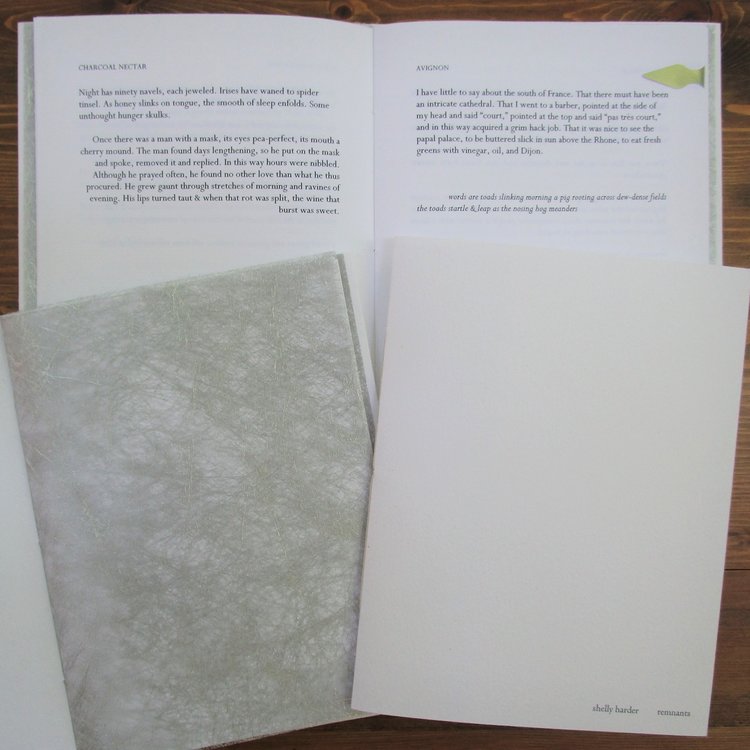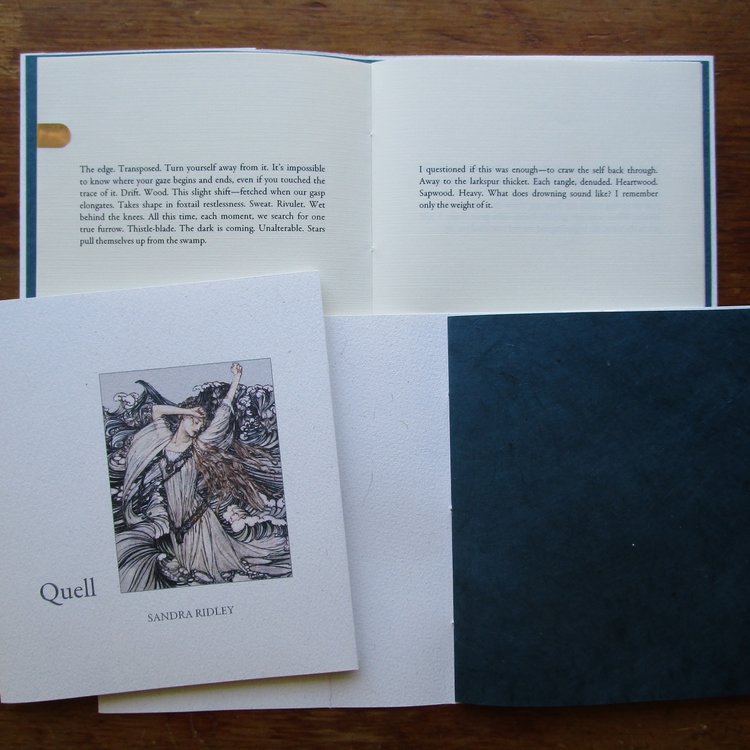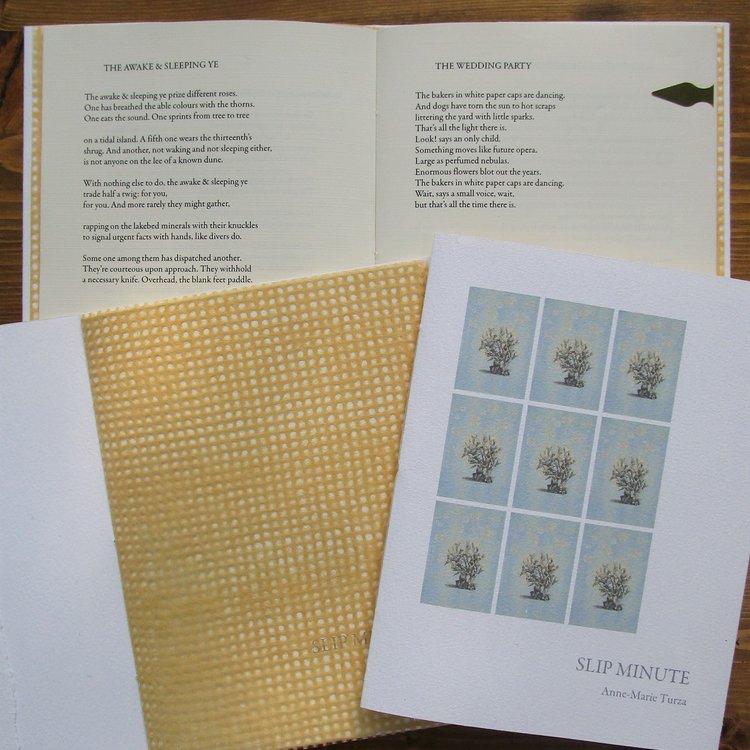Baseline Press ChapbooksReviewed by Amy Mitchell
|
The very first thing anyone who picks up a Baseline Press chapbook notices is how exquisitely crafted it is. These chapbooks are art objects in their own right, lovingly assembled and incorporating texturally beautiful paper and lovely prints. As one small example, the three chapbooks I’m going to review, remnants by Shelly Harder, Quell by Sandra Ridley, and Slip Minute by Anne-Marie Turza, have the following respective flyleaves (according to their colophons): “Philippine Sheen paper,” “handmade Nepalese paper,” and “Japanese watermark grid tissue.” Photos do not do these chapbooks justice; they are a joy simply to handle.
But the poetry within the chapbooks is also beautiful. One very interesting result of a chapbook series like this, for which there is one editor (Karen Schindler), is that it’s possible to see certain aesthetic choices resonating across the series, always expressed in an individual way but lending a kind of thematic wholeness to the chapbooks as a group. In the case of these three chapbooks, the aesthetic throughline is a deep fascination with the evocative potential of sound. All three employ unusual word choices that contribute to unique aesthetic soundscapes—and in the case of remnants and Slip Minute, sometimes these choices teeter on the edge of losing literal or even connotative meaning, but at the same time they create aesthetic landscapes that extend beyond rationality and “meaning.” This is not to say that there is no meaning—there is!—but that the experience of the poems often transcends the reader’s ability to explain how each component in them works. Quell, by Sandra Ridley, is the most deceptively simple of the three chapbooks. I learned at the Baseline Press launch that this poetic sequence is based on Ridley’s own experience with a good friend’s near-drowning, and the chapbook as a whole explores the lines between life and death, between consciousness and unconsciousness, between water and land, and between individual people: |




